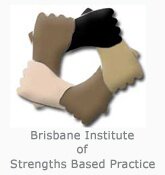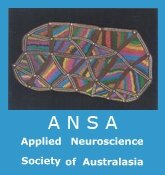|
ContributorsPractice of PsychotherapyThe Conversational ModelSelf PsychologyNotions of SelfBrief Interpersonal Therapies Dialectical Behaviour TherapyCognitive Behavioural TherapyAccept. & Commit. Therapy Attachment Child and AdolescentEMDRBody Oriented TherapiesAdvances in Neuroscience Art TherapyMindfulnessYoga and TherapyTestimonial TherapyEditors Review
|
An Interview with Dr Stephen Porges on the Polyvagal Theory
|
|
Prof. Stephen Porges , Deborah Gould
|
Dr Porges? area of interest over the last 10 years has been the evolution of the vagus nerve and its role in facilitating survival as well as social engagement. He proposes (in a theory he terms the Polyvagal Theory) that the vagus nerve has evolved in particular ways in mammals to facilitate social connection. This is partly accomplished through the enervation of facial and vocal structures.
However, trauma has the capacity to activate the more primitive branch where survival overrides the higher functions of social engagement. The regulation of heart rate, respiration and so on occurs at the expense of connecting with others. An interview with Stephen interestingly titled ?Don?t Talk to me I?m Scanning for Danger? sums up this argument. It is worth noting that this person is in a catch 22 ? unable to engage because of neurological imperatives and thus robbed of opportunities for healing through engagement.
This interview does spend some time on the above more theoretical aspects and Dr Porges is aware of the very different thinking styles of the clinician and the researcher. However, his research is leading to new protocols for the assessment and management of panic disorder, autism and a variety of other presentations. He suggests that there are components of psychotherapy, including the setting that might facilitate the client?s ability to move out of trauma and ?scanning? mode and into the realm of emotional exploration and resolution. A quiet, contained room and a calm and engaged therapist are a good start.
Conflit of interest: none disclosed
Recorded at the NSW Service for the Treatment and Rehabilitation of Torture and Trauma Survivors (STARTTS)
August 2008, New South Wales, Australia.
Visit STARTTS at : www.STARTTS.org.au
|
Stephen Porges
 |
 more about this speaker more about this speaker |
 other talks by the speaker other talks by the speaker

|

Prof. Stephen Porges
|
|
Stephen W. Porges, Ph.D. is Professor of Psychiatry and Director of the Brain-Body Center in the Department of Psychiatry in the College of Medicine, University of Illinois in Chicago. He is former President of the Federation of Behavioral, Psychological and Social Sciences and the Society for Psychophysiological Research. Dr. Porges is a neuroscientist with particular interests in understanding the neurobiology of social behaviour.
His research focuses on how the autonomic nervous system relates to adaptive behaviour, state regulation, and social engagement strategies. His research crosses disciplines and he has published in such diverse disciplines as anesthesiology, critical care medicine, ergonomics, exercise physiology, gerontology, neurology, obstetrics, pediatrics, psychiatry, psychology, space medicine, and substance abuse.
In 1994 he proposed the Polyvagal Theory, a theory that links the evolution of the vertebrate autonomic nervous system to the emergence of social behaviour. The theory provides insights into the mechanisms mediating symptoms observed in several behavioural, psychiatric, and physical disorders. His research is leading to new protocols to assess clinical disorders and innovative interventions designed to stabilize behavioural and psychological states and to stimulate spontaneous social behaviour.
|
Deborah Gould
|
|
Deb Gould is a Clinical Psychologist and clinical supervisor and has worked at STARTTS since 1998. She trained in South Africa as a General Nurse and Midwife before changing course, qualifying as a clinical psychologist in 1988. Prior to moving to Australia in 1998, she worked in academic and community settings in the Western Cape and Gauteng Province where she was Senior Clinical Psychologist at Community Paediatric Services. In her role as a therapist and clinical supervisor at STARTTS over the past 17 years, she has been involved in reflection on and treatment of a great number and variety of refugee clients. She draws inspiration, knowledge and skill from her colleagues and clients and hopes to impart some of this in her presentations.
|
 other talks other talks by the speaker
|
Navigation
......................................
Home Page
......................................
......................................
|
Help
......................................
......................................
......................................
|
Audio Visual Archives
......................................
......................................
......................................
......................................
|
Useful
......................................
......................................
......................................
|
|
|
|
Subscribers
Login Here
|
|
Email
|
|
Subscribe
Now
|
|
BENEFIT from
UNLIMITED ACCESS to our
GROWING VIDEO LIBRARY
Monthly
$19.95 - Unlimited Access
6 Months
$99.75 - Save 1 Month
1 Year
$149.95 - Save 3 Months
|
|
|














